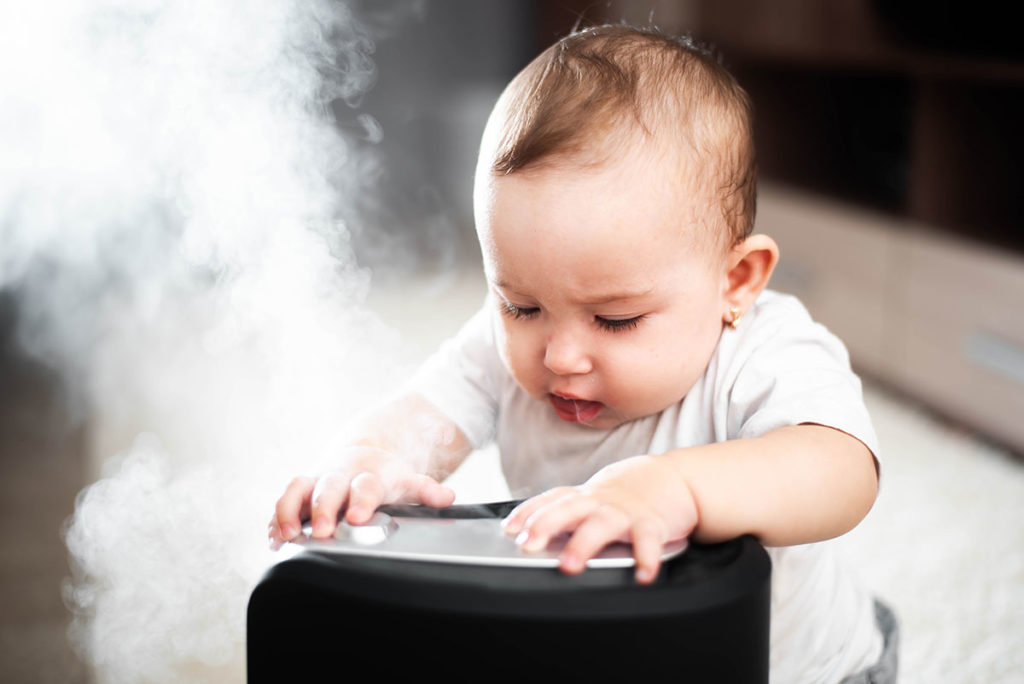If you want to know what it’s like to live in a humid climate, just ask any Floridian! We spend our summers in this very humid weather, and it often works its way into our fall and spring too. In order to combat the humidity, we tend to run our air conditioners constantly. A byproduct derived from running your air conditioner is that it naturally dehumidifies your home, which is great, but it can also leave your home feeling too dry.
What is a comfortable humidity level for your home?
Today’s homes have become better insulated and air conditioning systems have become better at removing moisture from the air, creating a greater chance of unreasonably low humidity in our homes which makes it more difficult for homeowners to control. A comfortable relative humidity for your home is between 30-50 percent. This allows you to stay comfortable and free of respiratory issues. A house that has too little humidity creates its own set of problems.
What are some of the problems associated with low humidity?
When the humidity in your home is too low it causes static electricity, dry skin, lips and hair, itching, and chapping. Dry air will draw the moisture not only from the surface of your skin but also inside, creating tiny cracks. These cracks are not only painful but can leave you open to infection.
According to the National Institute of Health (NIH)1, “a review of the health effects of relative humidity in indoor environments suggests that relative humidity can affect the incidence of respiratory infections and allergies.” Dry air also enables bacteria and viruses to linger longer in the air after someone sneezes or coughs, increasing your chances of getting sick. In addition, WebMD.com 2 says that “cold, dry air pulls moisture from your mouth and nose, leaving your nasal passages dried out and your throat dry.” Dry noses can make you more vulnerable to colds, sinus infections, and the flu. Your nose actually requires that gooey mucus to catch viruses and other allergens before that have the opportunity to make you sick.
Another part of our bodies that can be affected by low humidity is our eyes. Eyes can get dry and irritated. Low humidity increases the evaporation of tears, resulting in the drying out your eyes. Also, when the humidity is low your natural reaction will cause you to blink more often and an increase in blinking can lead to a deterioration in the performance of visual tasks such as reading or computer work.
Your home can suffer from low humidity too. Dry air can cause woodwork to shrink, hardwood floors to separate and warp, wallpaper to peel at the edges, drawers to loosen and molding gaps to start to appear.
If you live in the Orlando area and are seeing/feeling any of the issues we’ve talked about and want to learn more about whole-home humidification, give Rainaldi Home Services a call at (407) 413-9795 or schedule online. Adding a humidifier to your HVAC system benefits you by improving your health and your comfort!
1 Arundel, A V, et al. “Indirect Health Effects of Relative Humidity in Indoor Environments.” Environmental Health Perspectives, U.S. National Library of Medicine, Mar. 1986, https://www.ncbi.nlm.nih.gov/pmc/articles/PMC1474709/.
2 Felson, Sabrina. “Manage Dry Indoor Air This Winter.” WebMD, WebMD, 24 Oct. 2017, https://www.webmd.com/women/dry-indoor-air#1.

